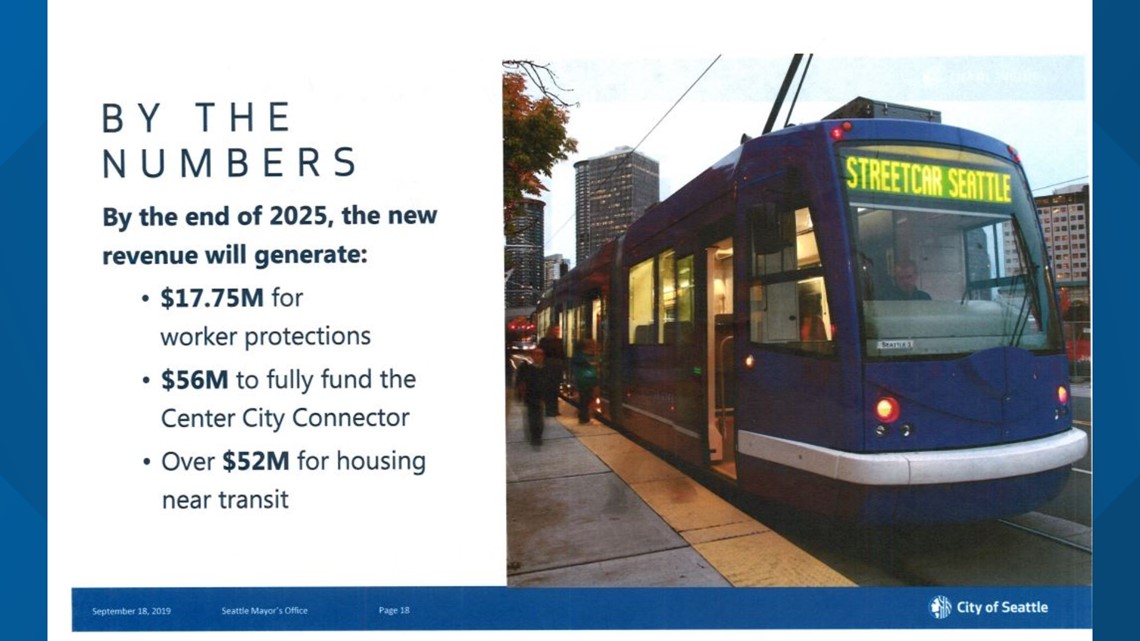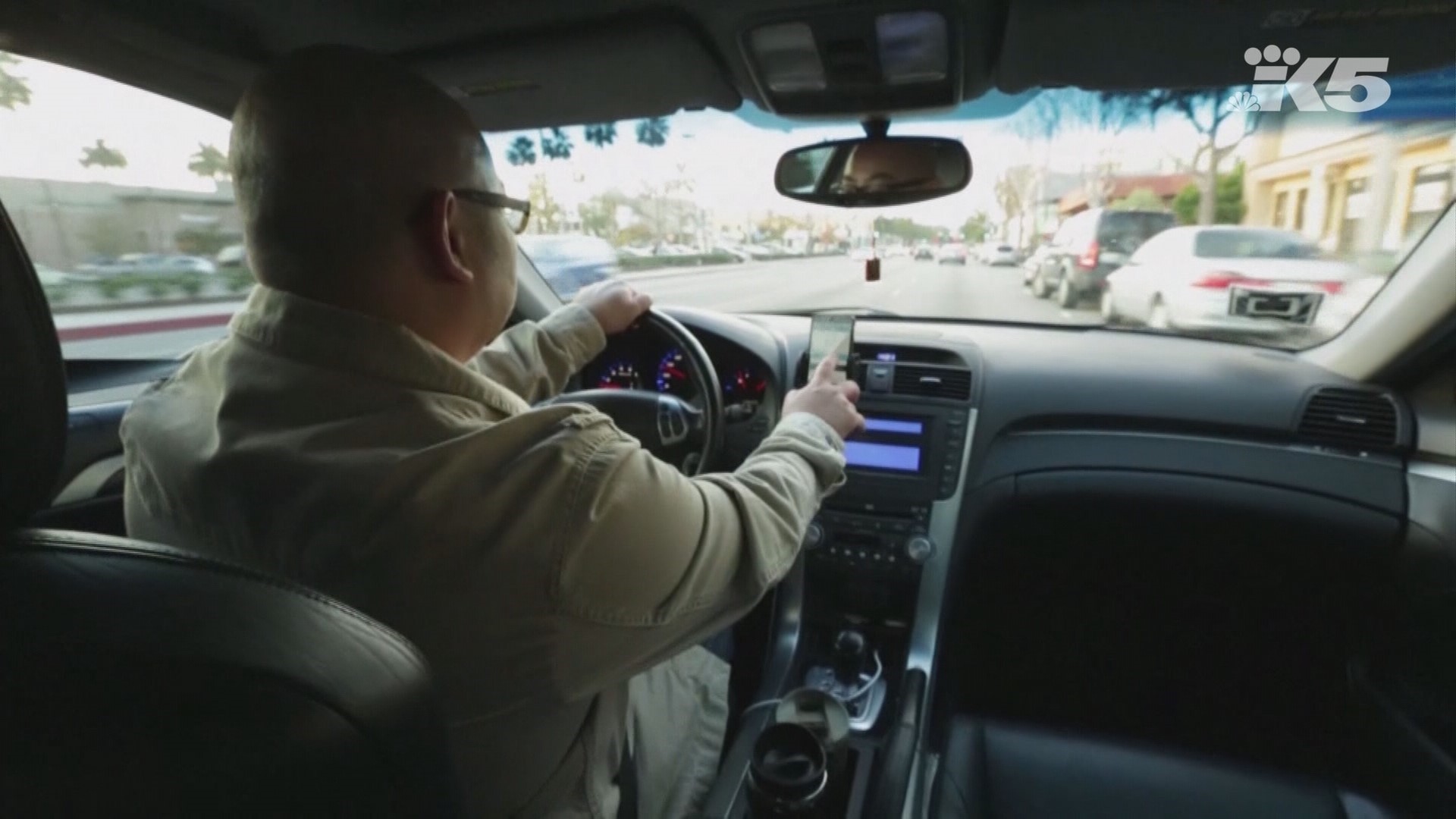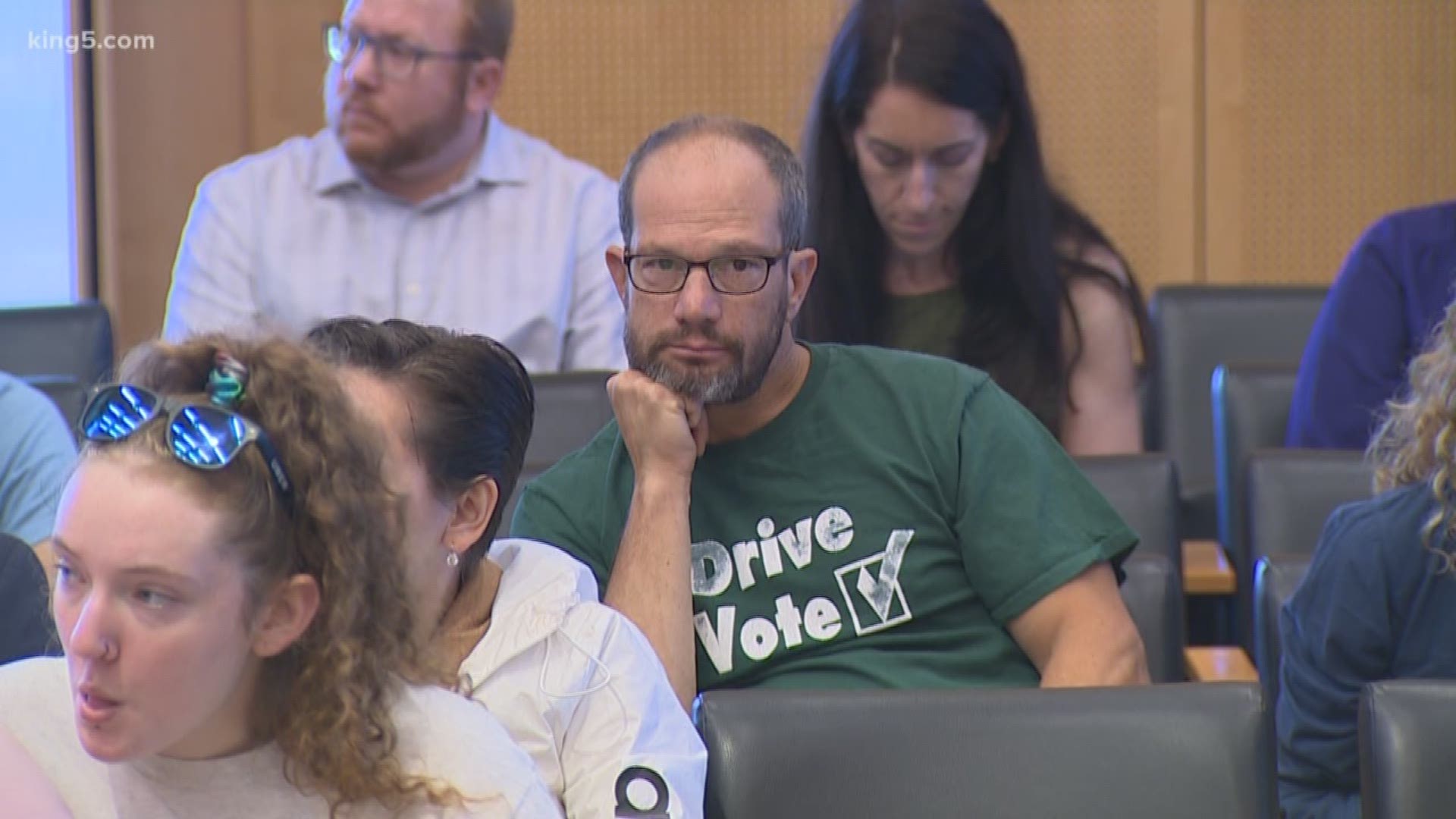SEATTLE — Seattle Mayor Jenny Durkan has unveiled an ambitious plan to radically change how Uber and Lyft drivers are paid that includes an increase to the city's per-ride fee on rideshare fares.
Under the proposal dubbed 'Fare Share', Durkan and her staff want to raise the city's rideshare fee charged per ride from $0.24 to $0.75. It will establish minimum wages and benefits for rideshare drivers, pay for a new 'Driver Resolution Center,' affordable housing, and to fully fund the Center City Connector street car line.
The mayor's complex package claims this increased fee will generate $52 million between 2020-2025. That money will be used to build 500 units of affordable housing near public transportation, and another $56 million to fund the streetcar, which has been in the unfunded purgatory created by overruns, and unexpected costs.
Proponents of the streetcar have argued it is needed to connect the existing South Lake Union and First Hill lines. The latter, Durkan said, has had a 31% increase in ridership since 2018.
The mandate for higher wages for drivers has been bubbling for several months with protests by Uber and Lyft drivers in Seattle and a push for unionization.


Durkan said the legislation would require companies to pay minimum wage to drivers operating in Seattle, plus compensation for expenses incurred that benefit Uber and Lyft. It also creates access to benefits such as paid sick and safe times, workers comp, and unemployment insurance.
The Driver Resolution Center will provide drivers with support via arbitration and appeals for anyone who claims they were unfairly deactivated by Uber or Lyft. It will also offer outreach and educational services for drivers who are immigrants and refugees. However, details were limited as to how and where that office would be created, and how exactly it would be staffed.
The mayor's pitch comes at a time when Seattle's Department of Transportation said rideshare is exploding in popularity, up 75% between 2016-2018 with 24 million rides in the past year.
Other cities have increased fees on rides, and Seattle's change would put it on par with Washington DC, and Chicago, according to the mayor's office.
Durkan told reporters on Wednesday the plan comes after "ongoing negotiations with drivers, Uber and Lyft".
The proposal does not apply to other app-based 'gig workers'.
Deputy Mayor Shefali Ranganathan said that after 2025, the ride fees would go to other transportation improvement items, like transit, bike and pedestrian improvements.
If implemented, as pitched, the new benefits and expenses would not go into place until July 1st, 2020. But it is likely that the language will be heavily discussed by the council.
Durkan believes she does have the council's support for the Streetcar spending.
Drive Forward, a member group of 2,000 drivers, expressed disappointment with Durkan's pitch immediately on Wednesday. In a statement, Executive Director Michael Wolfe wrote, "This misguided regressive tax proposal will only harm drivers and riders. It will make a transportation option Seattleites rely on everyday less affordable and take tens of millions of dollars out of drivers’ pockets. This tax is a political giveaway to the taxi union at taxpayer’s expense that doesn’t give drivers what they’ve asked for."
The statement said the group is concerned the increased fees will actual drive down demand, and in turn, driver pay.
In another statement, Uber's Nathan Hambley wrote “The mayor’s decision to triple Seattle’s tax on ridesharing will raise prices for riders and decrease trips for drivers. We support the creation of a guaranteed minimum earnings standard for drivers, and have engaged in good faith with the mayor’s office and labor leaders for several months on this issue in hopes of reaching a compromise. We believe that any rideshare proposals should be developed based on broad input from the entire rideshare driver community in Seattle.”


